More fundamental particles and forces
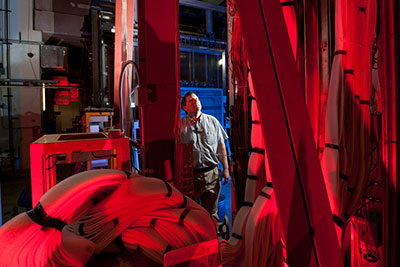
Fermilab is America's premier national laboratory for particle physics research. Particle physicists seek to understand the very building blocks of our universe—the smallest bits of matter and how they interact. Experiments at Fermilab use cutting-edge accelerator and detector technology to learn the secrets of these elementary particles and forces. For decades, thousands of scientists from universities and laboratories around the world have collaborated at Fermilab on experiments at the frontiers of discovery.
Holometer
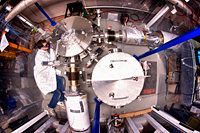
The Holometer is the first experiment to address the question of whether space and time are quantized or whether they are smooth.
SeaQuest
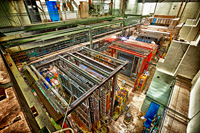
SeaQuest explores the structure of the proton and of the particles of which it is made.
CDF
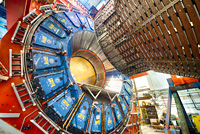
The CDF experiment studied high-energy collisions at Fermilab's Tevatron particle accelerator. In 1995, scientists at CDF and its sister experiment discovered the top quark, one of the fundamental particles that make up the Standard Model of particle physics. Both experiments made important measurements and served as models for experiments at the Large Hadron Collider.
DZero
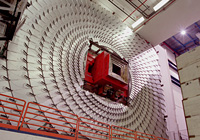
The DZero experiment studied high-energy collisions at Fermilab's Tevatron particle accelerator. In 1995, scientists at DZero and its sister experiment discovered the top quark, one of the fundamental particles that make up the Standard Model of particle physics. Both experiments made important measurements and served as models for experiments at the Large Hadron Collider.
- Last modified
- 02/09/2016
- email Fermilab

